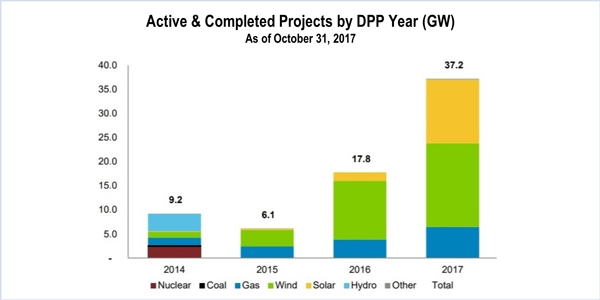By Amanda Durish Cook
CARMEL, Ind. — Amid growing complaints about the sluggishness of its redesigned interconnection queue, MISO is rolling out a new way for stakeholders to voice their concerns about the process.
RTO staff on Tuesday introduced a new feedback form designed specifically to capture stakeholder opinions on issues discussed during Interconnection Process Task Force (IPTF) meetings, in addition to other advice related to the queue.
“If there are any areas of the process that you see need improvement, we want to make sure that we have a channel for stakeholder voices to be heard,” Arash Ghodsian, MISO manager of economic studies, said during a Jan. 16 IPTF meeting.
MISO will accept stakeholder submissions for about three weeks after IPTF meetings and post responses to the feedback on its public website, Ghodsian said.
Developer EDF Renewable Energy on Jan. 4 filed a FERC complaint against MISO’s year-old interconnection queue process, contending that the procedure is still too slow to ensure the company’s wind projects will beat the 2020 federal production tax credit deadline.
EDF argued that its projects can only meet the tax credit deadline if MISO completes interconnection studies by June 2019 to allow for the average 18-month construction of a wind farm. Otherwise, wind developers could risk forfeiting “tens of billions” of dollars, the company said. It urged FERC to consider a fast-tracked queue progression for vetted projects. (See Renewables Developer Escalates MISO Queue Design Dispute.)
“MISO will file a response to that complaint in the coming days or weeks,” Corporate Counsel Michael Blackwell said.
Meanwhile, the RTO has updated its timetable for when it expects projects that entered the queue’s definitive planning phase (DPP) during the past two years to execute generator interconnection agreements. The most recent predictions, divided by region, have projects clearing the DPP as late as July 3, 2019, in the wind-heavy MISO West region. In all other regions, the August 2017 cycle of projects are expected to wrap up in February or March 2019, except in the Upper Peninsula area of MISO East, where projects are slated to finish this December.
MISO’s queue reform was intended to reduce the number of days that interconnection customers spend in the DPP from an average of 589 days to 460. Customers that entered the August 2017 cycle of projects are currently predicted to spend an average of 579 days in the DPP before entering an interconnection agreement.
RTO staff and IPTF leadership will also assess the need for a February task force meeting based on stakeholder requests. Wind on the Wires consultant Rhonda Peters campaigned for the additional meeting, saying a conference call was needed between now and the next scheduled meeting on March 13, considering the queue’s tight timeline.
MISO will accept new generator interconnection requests until March 12 for the April 2018 DPP cycle of projects and until Jan. 22, 2019, for the March 2019 cycle.






